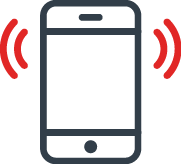The FTC Shares 3 Scam Stories
Posted On: August 28, 2018 by Community Bank of Parkersburg in:
Story #1: “You’ve Won the Lottery!”
Who wouldn’t love to see themselves holding a great big sweepstakes check! That’s what con artists are counting on when they tell you that you’ve won the lottery. This trick is an oldie but goodie for scammers.
The scam starts with a call or letter saying you’ve won a lottery, but to collect your prize, they say, you need to send money to pay for fees and taxes. There are two ways scammers will do this: Typically you’ll be asked to send money by Western Union or MoneyGram, or by getting a reloadable card or gift card. Scammers ask you to pay these ways because it’s nearly impossible to trace the money – and you’ll almost never get it back.
But that’s not the only way scammers will try to get your money. Some may even send you a realistic-looking fake check in the mail. You’re told that, to claim your prize, you need to deposit the check and send some of the money back for made-up expenses. But when the check you deposit bounces – even after it seemed to clear – you may be on the hook for the money you sent.
If you think you’ve won a prize, here are a few things to know:
- Never send money to collect a prize.
- Never deposit a check and send back money, even if the funds appear in your account.
- If anyone calls asking you to pay for a prize, hang up and report it to the Federal Trade Commission (FTC).
The lesson? Never pay a fee to collect a prize!
Story #2: Secret Shopping and Fake Checks
Here’s how it starts. You get a check in the mail with a job offer to be a secret shopper. You deposit the check and see the funds in your account a few days later, and the bank even tells you the check has cleared.
Now you’re off to the store you’ve been asked to shop and report back on, often a Walmart. Your first assignment is to test the in-store money transfer service, like Western Union or MoneyGram, by sending some of the money you deposited. Or you might be told to use the money to buy reloadable cards or gift cards, such as iTunes cards. You’re instructed to send pictures of the cards or to give the numbers on the cards.
Fast forward days or weeks to the unhappy ending. The bank finds out the check you deposited is a fake, which means you’re on the hook for all that money. How does that even happen? Well, banks must make funds from deposited checks available within days, but uncovering a fake check can take weeks. By the time you try to get the money back from the money transfer service, the scammers are long gone, and they’ve taken all the money off the gift cards, too.
The moral of the story? If anyone ever asks you to deposit a check and then wire or send money in any way, you can bet it’s a scam. No matter what they tell you.
Story #3: Gift Card Grifters
Has someone asked you to go get a gift card to pay for something? If you’ve gotten a call like this, you know that the caller will then demand the gift card numbers and PIN. And, poof, your money is gone.
Scammers are good at convincing people there really is an emergency, so lots of people have made the trip to Walmart or Target or CVS to buy gift cards to send these callers. And scammers love gift cards – it’s one of their favorite ways to get your money. These cards are like giving cash – and nearly untraceable, unless you act almost immediately.
Gift cards are for gifts, not payments. If you’ve bought a gift card and lost money to someone who might be a scammer, tell the company who issued the card. If you act quickly enough, they might be able to get your money back. But – either way – it’s important that they know what happened to you.
Want to avoid the latest rip-offs? Sign up for free scam alerts from the FTC at FTC.gov/Scams.
This information brought to you by your friends at Community Bank, where your financial safety is our top priority!
Remember, if it seems too good to be true … then it most likely is!



0 comments